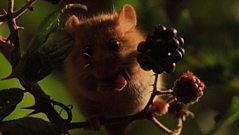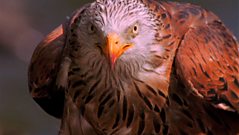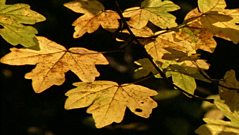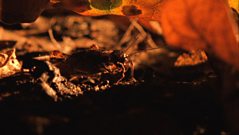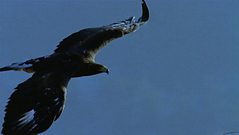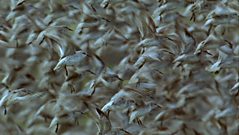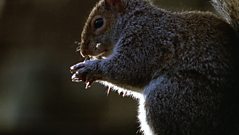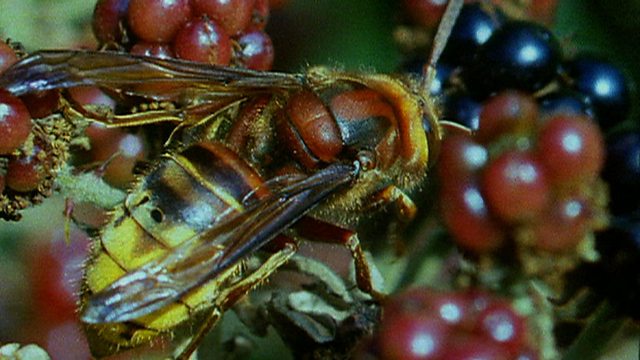
Last supper
Only the fertilised hornet queen will survive the silly season to hibernate in the UK winter.
Very few adult insects survive the British winter. Colonial insects like hornets will already have spent the autumn preparing for the next generation. Throughout the summer the workers gather nest material, chewing wood fibre into a pulp that they take to their colonial home. There they build more and more papery cells on to their nest, until finally it is about the size of a football. Inside the nest, thousands of developing males and females are attended by an industrious army of workers. This new generation of drones and virgin queens flies from the nest in early autumn and mates, but only the fertilised queens will hibernate and survive the winter. The rest will die. Most of the year, hornets feed on other insects but in late summer they switch to the sugar in berries and fruits. This can have side effects as the hornets get intoxicated on fermenting fruit. Ivy is one of the last wild plants to flower and in late autumn it is a vital source of nectar for those few insects still on the wing.
Duration:
This clip is from
Featured in...
![]()
大象传媒 Nature
Be captivated, informed and inspired by the world's wildlife.
More clips from AUTUMN
-
![]()
Dormouse hibernation
Duration: 00:58
-
![]()
Kite country
Duration: 02:27
-
![]()
Autumn colours
Duration: 01:07
-
![]()
Leaf litter life
Duration: 00:49
More clips from Living Britain
-
![]()
Winter scavengers—DEEPEST WINTER
Duration: 01:20
-
![]()
Winter waders—DEEPEST WINTER
Duration: 02:06
-
![]()
Springing to life—DEEPEST WINTER
Duration: 03:42
-
![]()
Industrial age otters—DEEPEST WINTER
Duration: 00:58


